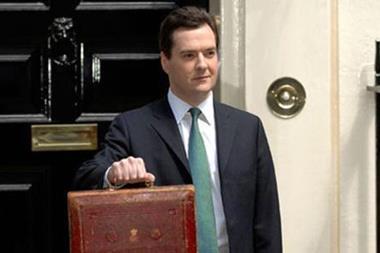Chancellor George Osborne has announced a new compulsory living wage of £9 an hour by 2020, offset by a cut in corporation tax from 20% to 18% by the same year.
Speaking in today’s Budget announcement, he also set out plans to increase the National Insurance employment allowance for small businesses by 50% to £3,000, as well as giving elected mayors and local authorities the power to remove Sunday Trading regulations - first revealed yesterday.
The new living wage will apply to all workers aged over 25 and will increase from the current minimum wage of £6.50 to £7.20 from next year.
Osborne also increased the tax-free allowance to £11,000 from next year, while confirming that people on the minimum wage would not pay tax unless they worked more than 30 hours a week.
The Association of Convenience Stores has criticised the government’s decision to introduce a mandatory living wage. Chief executive James Lowman said: “The introduction of a compulsory ‘Living Wage’ will have a devastating impact on thousands of convenience stores. This will lead to retailers having to reduce staff hours, work more hours in their business and ultimately cancel their investment plans.
”To introduce this measure with no consultation undermines the independent Low Pay Commission and is a reckless way to impose a massive burden on small businesses.”
He also slammed the proposals to relax Sunday Trading rules, which currently require large stores to limit opening hours to six hours on a Sunday.
“Giving local authorities the responsibility for setting Sunday trading hours will lead to inconsistency and confusion for businesses and shoppers. In areas where large stores’ trading hours are extended, we will simply see the same amount of trade spread over more hours and shifting from small stores to large stores, as was the case when the laws were suspended for the 2012 London Olympics, when overall retail sales actually fell,” he said.
“Existing Sunday trading laws are a popular compromise that balance the needs of consumers, shopworkers, small stores and families. Over three-quarters of people like the laws as they are, and fewer than one in ten people want to see longer Sunday opening hours. The short period of time that small stores are open while large stores are shut is a crucial advantage for convenience stores, most of which are owned by small businesses. Liberalising Sunday trading hours would make some small stores unviable.”
FWD chief executive James Bielby added: “This is a baffling move by the Chancellor, one which was not mentioned anywhere during the election campaign.
“There is no compelling evidence to suggest that sales will increase if larger shops are open longer, and even the supermarkets are unconvinced of the value of longer hours. Simply spreading consumer spend over a longer period adds cost to businesses with little extra benefit, but it punishes the smallest operators who have previously had this tiny advantage over the national chains.”
ACS research conducted in February 2015 by ComRes showed that 76% of the public support existing Sunday trading regulations. Of those who are in favour of change, 60% called for greater restrictions on trading hours.
During the temporary removal of Sunday Trading rules during the Olympics, sales actually declined by 0.4% overall, with some smaller retailers reporting a sales decline of up to 20%, according to the ACS.





















4 Readers' comments